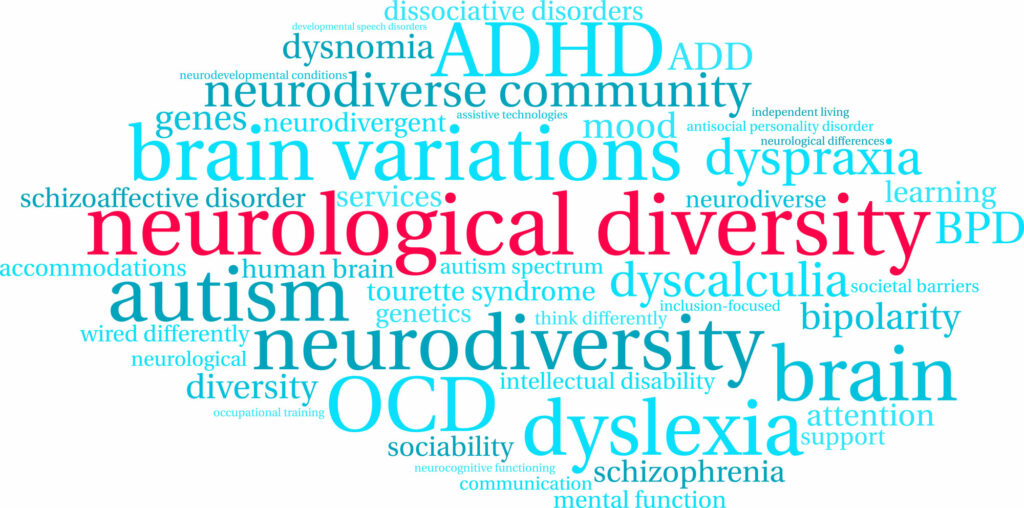Odds are you are reading part 2 of this 9-part series because you can relate to David and Amber, who are trying to parent their 15-year-old son, Johnny, who struggles with ADHD and chronic challenging behavior.
This brave couple contacted me while admitting they had no patience, no plan, and no clue about how to proceed with their beloved son.
You’re about to discover how I used Collaborative Problem Solving® or CPS to help them unlock Johnny’s full potential by resolving the underlying problems that caused his challenging behavior—something they have not done until now!
A New Approach To Parenting Children With ADHD

David and Amber are just like the rest of us. They want to parent their ADHD kiddo with more confidence and less effort. In essence, they want to end what they described as “the insanity in our home.”
They needed a guide with a plan—and that’s when we joined forces.
David and Amber's Second Meeting
Despite the obstacles of parenting kids with ADHD, David and Amber arrived for our second meeting feeling hopeful.
Our first meeting ignited a spark, helping them recognize that Johnny’s potential is limitless—and their job was to focus less on his excessive or deficient behavior and more on providing the essential ingredients he needed to thrive each day.
David and Amber said they were ready to “make the shift.”
While they wanted me to help them identify and resolve the underlying problems that caused Johnny’s challenging behavior, they needed to recognize the limiting beliefs that interfered with parenting their son effectively.
I had to help them recognize a powerful truth that colored their entire approach to parenting. Like all of us, David and Amber suffered from biases and misconceptions about effective parenting and how it truly works.
As a result, they had several wrinkles we needed to iron out before we could reach their ultimate goal.
So, I started our second session with a simple question: “Why, in your view, do you think Johnny is so challenging?”
The Truth About ADHD Kids And Consequences
Amber responded, “He’s a good kid, but he’s smart, strong-willed, manipulative, and knows exactly what buttons to push!” David responded, “We know he has ADHD but doesn’t apply himself. He needs to try harder.”
Like most parents, David and Amber’s answer reflected their reliance on well-established beliefs and common practices passed down through generations. People like me refer to it as conventional wisdom.
Sadly, their answers revealed how it governed their parenting style.
Unsurprisingly, they understood the root cause of Johhny’s challenging behavior as something like this: along Johnny’s life journey, he learned that forgetting, blaming others, swearing, and destroying things helped him 1) get the attention he craved or 2) get his way.
In addition, their answers showed me that they assumed Johnny’s challenging behavior was planned, intentional, and purpose-driven.
And that was just the beginning. David and Amber believed that better behavior was well within Johnny’s control—and they needed to motivate him to want to behave better!
David and Amber’s Dilemma
Later in our discussion, I learned that David and Amber believed they were at fault because Johnny learned these unwanted behaviors from them.
They informed me of being “too passive,” permissive, and “inconsistent” disciplinarians.
Unsurprisingly, their previous therapist, a sought-after board-certified behavioral analyst (BCBA), taught them that each time they “gave in” to Johnny’s demands, they reinforced his challenging behaviors—making them more likely in the future.
Hence, David said, “We need you to help us teach Johnny who’s in charge, so he’ll finally learn how to behave!”
Amber followed with, “We must be doing something wrong. Nothing seems to work. It feels like we’re ruining our son and raising him to hate us!”
Why They Sought ADHD Parenting Help
Unwittingly, David and Amber sought my services to help them unlearn what they believed was their lax and inconsistent parenting style.
Their parenting style was not the problem. In reality, the real culprit is their reliance on conventional wisdom about parenting.
Here’s what I mean.
While under the influence of conventional wisdom, David and Amber assumed that if I could help them learn more effective ways to reward Johnny’s good deeds and punish his bad deeds—and stay consistent at both—it would help decrease those agonizing episodes of challenging behavior and increase their family harmony.
At this point, this loving couple was unaware that I was introducing them to a completely different, evidence-based approach to eliminating what they described as “the insanity in our home.”
Why Conventional Wisdom Won’t Work With ADHD
David and Amber’s former therapist relied on behavior modification or operant conditioning methods because it was deemed “THE” royal road to effective parenting.
While using that approach, their best efforts produced nothing more than a son who was chronically disruptive, defiant, and disengaged.
As a result, this conventional approach left them frustrated, confused and defeated each day.
Afterward, they’d lay awake in bed each night wondering, “Is something wrong with our kiddo? Or are we just bad parents?
The Hidden Culprit
Without a doubt, the real problem stemmed from the training David and Amber received from well-meaning experts who relied on behavior modification methods that research has now shown to be largely ineffective and counterproductive—especially for kiddos with ADHD or chronic behavioral challenges!
My 22 years of teaching college-level psychology courses (Behavior Modification, Developmental Psychology, and Psychological Disorders, to name a few) helped me rely on a different lens to view, interpret, and understand Johnny’s episodes of challenging behavior.
Thankfully, There is a Better Way!: The Collaborative Problem-solving® Approach
The Collaborative Problem-solving® approach (CPS) is a dramatic departure from the view that challenging kids choose to be attention-seeking, manipulative, coercive, controlling, or poorly motivated.
It uses an entirely different set of lenses to identify, understand, and manage challenging episodes. Thankfully, it’s easy to implement and well supported by more than 40 years of research in neurosciences.
As you’ll soon discover, it dramatically affects how caregivers act, react, and interact with challenging kiddos like Johnny.
For an overview of CPS, check out the brief video below:
The Challenge With A New Set Of Eyes
As David and Amber started down the pathway to shift their lens for understanding Johnny’s challenging behavior, I ran into a predictable hurdle. It happens every time I meet with people who try to understand challenging behavior with a fresh set of eyes or a new perspective.
Like all the others, David and Amber held tightly to the power of behavior modification—despite the counter-productive results they encountered and my showing them that it was far less effective than the alternative CPS approach.
The reason behind their suffering was simple.
For starters, change isn’t easy. But the real problem was much more extensive and far more corrosive.
They were under the influence of conventional wisdom—intoxicated with “wisdom” passed down through the ages.
A New Lens To Understand Challenging Behavior
Like most parents, David and Amber wanted to stop the behavioral challenges from interfering with life in their living room.
Yet, while under the influence of conventional wisdom, they struggled to understand what lay beneath the surface of Johnny’s alleged “misbehavior.”
Collaborative Problem Solving® (CPS) views challenging behavior as a predictable form of communication, signaling that Johnny is struggling to meet the demands of a particular situation.
CPS maintains that challenging kiddos are not giving you a hard time as much as they are having a hard time because delayed cognitive skills like flexibility, frustration tolerance, and problem-solving interfere with their ability to meet adult expectations.
In short, there was a gap between what was expected of Johnny each day and the thinking skills he could access to meet those demands.
It was as if Johnny was saying, “Help! I’m struggling to meet your expectations, but I can’t express my feelings. Instead of using my words to talk things out, I act them out, hoping you will understand. Sadly, you don’t get what my actions are so desperately trying to say, and it’s making me feel alone and crazy inside!”
Unsurprisingly, when loving parents and professionals try to reduce episodes of “misbehavior” with incentives like rewards and consequences, it becomes counter-productive and down-right ineffective—and Johnny’s challenging behavior said that loud and clear.
The Lens Gets Clearer
As David and Amber tried to solve the “misbehavior” problem with rewards and consequences, they accidentally and unintentionally did so—at the expense of the stress-behavior that caused it.
As the counterproductive events continued to follow each day, David and Amber realized a disturbing truth: they spent all their energy trying to solve the wrong problem.
Like all of us, they suffered from biases and misconceptions embedded in our conventional views about helping their behaviorally challenging son—and it was a major cause for the insanity in their home!
A Point To Ponder
Suppose David and Amber don’t shift to collaborative problem-solving.
In that case, they are likely to persist with ineffective parenting strategies that not only solve the wrong problem BUT generate even more problems for Johnny:
- Poor self-esteem?
- Fractured relationships?
- A cynical view of life?
I care deeply about parents having knowledge they can use to develop effective parenting skills that help children become adults.
As such, I need to help David and Amber acquire that foundational knowledge with a brief lesson on how stress impacts Johnny’s daily behavior—and it’s eye-opening!
Stress And Children With ADHD

Thankfully, trailblazers like Dr. Jerome Schultz help us recognize the resulting events that follow stress-induced behaviors in his book Nowhere to Hide: Why Kids with ADHD and LD Hate School and What We Can Do About It.
Schultz argues that children and students with learning disabilities (LD) and attention deficit hyperactivity disorder (ADHD) struggle to meet adult expectations when they lack thinking skills like the ability to focus.
As a result, they experience high levels of toxic stress—and it governs their behavior.
He argues that these kiddos often disengage or actively reject the demands placed on them to protect themselves from the stress central to their school experiences.
Unsurprisingly, their challenging behaviors (disruption, defiance, and disengagement) are adaptive stress responses. Meanwhile, society deems those same behaviors as maladaptive coping mechanisms!
It’s no wonder kiddos like Johnny often feel like left-handed kids in a right-handed world. Each day, they are unrecognized and tragically misunderstood.
The Emotional Context Kids Face With ADHD
If we think about it, each day, students like Johnny are placed in stressful situations that demand specific thinking skills to help them follow instructions, transition from one task to the next, tolerate frustration, or get along with classmates.
Since those skills are typically lagging in kiddos with ADHD, these situations become activating events where they have little control or a small chance for success.
Ultimately, those situations raise the odds of feeling exposed, embarrassed, ashamed—and sometimes humiliated.
As a result, their brains shift into survival mode to adapt to stress.
Doing so activates the brain’s fight, flight, or freeze responses and what Dr. Schultz refers to as “saving FASE” (fear, anxiety, stress, escape). What follows is a vast array of challenging behaviors.
ADHD And Saving FASE (fear, anxiety, stress, escape)
In other words, children with ADHD “save FASE,” because they need to reduce the fear, anxiety, and stress embedded in the demands placed on them.
Although these actions tend to be viewed as challenging behavior or a “poor choice,” each is a coping skill, an adaptive—and highly predictable—stress response.
Depending on the situation and personality of the child, challenging behavior might manifest as apathy and disengagement.
Or, in cases like Johnny’s, it manifests as anger and aggression.
Sadly, if the situation remains unchanged, the Johnnys of our world experience chronic stress, generating symptoms like burnout, helplessness, and a gloomy or pessimistic view of people, life, or themselves!
The Free-Floating Anxiety Generated By ADHD Is Not Your Fault
One thing is certain: none of the parents, teachers, or professionals I’ve counseled try to place excessive stress on kiddos like Johnny.
In contrast, they work diligently to tailor the learning environment to a kiddo’s abilities—and for a good reason. Age-appropriate expectations promote a sense of competence and healthy development and increase the kiddo’s potential for success.
While the home and school settings that children with LD and ADHD reside in may offer age-appropriate expectations, they are not skill-appropriate. What follows is an environment filled with free-floating stress—and it’s nobody’s fault. Here’s what I mean.
The Power Of Free-Floating Anxiety
When kiddos like Johnny are expected to do something that outstrips thinking skills like tolerating frustration, being flexible, or recognizing social cues, it activates the brain’s survival centers. What follows are predictable stress-induced behaviors:
- Not following directions
- Incomplete assignments
- Refusing to read aloud
- Difficulty making friends
- Difficulty sitting still in class
In the end, Shultz shows us a missing piece of the ADHD puzzle and helps us realize part of what’s getting in the way of kiddos reaching their full potential.
Shultz argues that children with learning disabilities (LD) and attention deficit hyperactivity disorder (ADHD) live in constant fear of failing, disappointing others, being embarrassed, or being misunderstood, and the resulting events that typically follow are challenging behaviors.
The Shift In Thinking Continues
After considering the information from Shultz’s book, David and Amber felt alarmed, compassionate, and hopeful.
They recognized that while anxiety and helplessness can be learned, so can safety!
Thankfully, the Johnnys of our time can develop what Shultz calls learned safety. It’s the confidence learned from working with others, namely parents and trusted adults.
Later in our series, you’ll learn that each positive experience—between parent and child, teacher and student—is a dose of what CPS refers to as a “good dose of stress.”
Ironically, that dosage of good stress, not rewards and consequences, is the royal road to helping kiddos develop the skills they need to:
- Protect themselves from stressful situations.
- Meet the expectations placed on them with more confidence and less effort.
- Solve problems without stress, punishment, or a fancy reward system.
Thankfully, There Is A Better (And Proven) Way To Parent Children With ADHD
As I help David and Amber rewrite the narrative surrounding Johnny’s struggles with ADHD and challenging behavior, I invite you to read my next article, revealing our plan to unlock his full potential.
By the end of this series, you’ll discover how David and Amber shifted from using rewards and consequences to the Collaborative Problem Solving® approach (CPS) to strengthen Johnny’s thinking skills so he can thrive. And it was a game-changer!
ADHD Counseling in Tustin, CA
If you can relate to David and Amber, you know that managing chronic, challenging behavior shouldn’t be so hard. Discover how to transform life in your living room (or classroom) with ADHD or ADD counseling in Tustin, Ca. I would love to be your guide!







